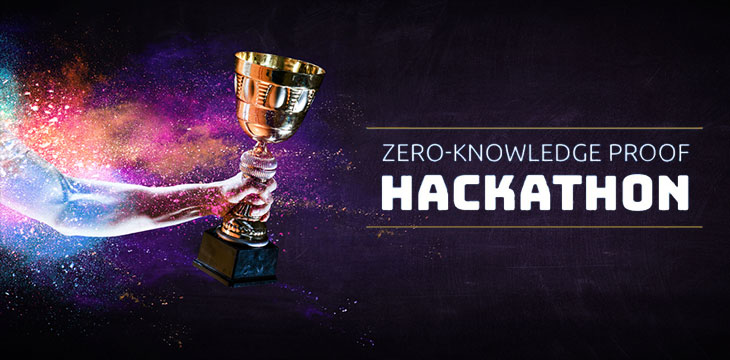|
Getting your Trinity Audio player ready...
|
Developer tools and a game have won the three top prizes in the inaugural Zero-Knowledge Proof Hackathon. The winners mark a big step towards running more useful and sophisticated contracts on the Bitcoin blockchain. They each take a share of the $45,000 prize pool to continue working on their projects.
From first to third, the winners were the BLS12-381 Library, ZkBaguette, and ZK Minesweeper. The 10 finalists in the Zero-Knowledge Proof Hackathon were announced a few weeks ago, with 60 submitted projects by 928 participants worldwide. The hackathon began in the first week of October 2022 and was organized by sCrypt, Timechain Labs, nu10, and the Bitcoin Association.
Organizers declared the Zero-Knowledge Proof Hackathon “an overwhelming success.”
“Many excellent submissions were received, making it difficult to narrow it down to just three winners, and we encourage all participants to take part in the next hackathon,” organizers said.
About the winners and judges
The winners were judged by a panel of Bitcoin and ZKP experts: Dr. Craig S. Wright, Dr. Jack Rogers, Jens Groth, Jad Wahab, Dr. Enrique Larraia, and sCrypt founder Xiaohui Liu.
BLS12-381 is a code library that (as the name suggests) implements the BLS12-381 curve pairing algorithm on Bitcoin. According to developer Walker Step, this is more secure and “pairing-friendly” than sCrypt’s current zero-knowledge proof library (BN256). It also means Bitcoin will become the only blockchain where ZKP developers can choose which curve to use and know that the network can handle it.
ZkBaguette is from developer Nikamoto S, who said, “I was frustrated by the large size of the zksnark smart contract, probably like everyone else, and believed I could provide an easy-to-use alternative for everyone building a zk app.” ZkBaguette also reduces the overall size of the Script code, saving users money on fees. To test the code, Nikamoto S tried it on third-place-getter ZK Minesweeper, reducing the size of its contracts from 7,575,932 bytes to 1,954,015 after compiling.
As for ZK Minesweeper, it’s probably the only project in the Hackathon that ordinary users will get to see (given the other two are developer tools). It’s an implementation of the classic game that should be familiar to many (and pretty much everyone who used an older version of Windows). Similar to Battleship, it involves the player trying to locate targets on a blank grid. On a blockchain network, this means the fixed location of “mines” on the grid can be verified without revealing to anybody where they are. On older versions of the game (like Windows 3.1), the player just had to trust the system was fair, which is fine if you’re playing casually, but games involving monetary payouts may demand more verifiable honesty.
Why are ZKPs important in blockchain?
Zero-Knowledge Proofs, usually called ZKPs, are relatively recent innovations in computer science and cryptography. Deploying them in blockchain contracts means a user can prove they have certain data without revealing what that data is.
The most-relatable example is the Minesweeper game described above, but there are almost limitless applications for ZKP technology. A user could verify their ID without having to reveal actual identity documents, eliminating the risk of identity theft. Someone in possession of valuable information could prove they have that information to a potential buyer without needing to show any of it. A potential investor could prove they have sufficient net worth to join a project without revealing exactly how much money they have.
Though extremely useful in the blockchain world, ZKPs are computationally intensive and, therefore, expensive and/or beyond the capacity of most blockchains. Only the BSV blockchain, which runs on Satoshi Nakamoto’s original Bitcoin protocol with unbounded scalability, is capable of handling processes like ZKPs in a cost-efficient manner, making BSV the best-choice blockchain network for enterprise-tier applications.
Watch: The BSV Global Blockchain Convention presentation, Smart Contracts and Computation on BSV

 02-27-2026
02-27-2026 




